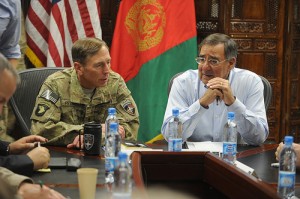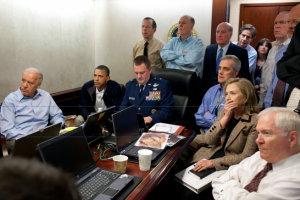Iraq Learned the Ray Davis Lesson from Pakistan
Before I point out an (IMO) overlooked detail from the NYT story describing how contractors in Iraq are being “harassed,” let me first draw attention to what NYT has hidden in paragraph 8:
Private contractors are integral to postwar Iraq’s economic development and security, foreign businessmen and American officials say, but they remain a powerful symbol of American might, with some Iraqis accusing them of running roughshod over the country. [my emphasis]
I suppose NYT felt the need to offer an innocuous explanation for the presence of so many contractors. But when you realize who is offering that explanation, the attempt to normalize the contractors doesn’t seem so innocuous anymore.
Which leads me to the detail that most struck me.
Iraqi authorities have detained a few hundred foreign contractors in recent weeks, industry officials say, including many Americans who work for the United States Embassy, in one of the first major signs of the Iraqi government’s asserting its sovereignty after the American troop withdrawal last month.
The detentions have occurred largely at the airport in Baghdad and at checkpoints around the capital after the Iraqi authorities raised questions about the contractors’ documents, including visas, weapons permits and authorizations to drive certain routes. Although no formal charges have been filed, the detentions have lasted from a few hours to nearly three weeks. [my emphasis]
You see, it’s not just that Iraq has created the TSA identity check from hell for the contractors at the Baghdad Airport. It’s not just that Iraq wants to keep track of who’s packing what. Iraq also has certain routes they’re restricting access to without appropriate paperwork, thereby limiting access to those areas for anyone not willing to go without a contractor protecting them or at least sufficient notice to get paperwork.
That kind of location-based “harassment” seems to be behind the most extreme case described, in which Iraq stopped a 10-car convoy–of the 15 contractors involved, 12 were Iraqi–on its way from south of Baghdad north of the city.
Last month, two Americans, a Fijian and 12 Iraqis employed by Triple Canopy, a private security company, were detained for 18 days after their 10-vehicle convoy from Kalsu, south of Baghdad, to Taji, north of the capital, was stopped for what Iraqi officials said was improper paperwork.
One of the Americans, Alex Antiohos, 32, a former Army Green Beret medic from North Babylon, N.Y., who served in the Iraq war, said in a telephone interview Sunday that he and his colleagues were kept at an Iraqi army camp, fed insect-infested plates of rice and fish, forced to sleep in a former jail, and though not physically mistreated were verbally threatened by an Iraqi general who visited them periodically. “At times, I feared for my safety,” Mr. Antiohos said.
It’s not clear whether this will continue. An anonymous DOD source quoted in the story suggests the tension reflects a period of adjustment. But to the extent it does continue, it does more than just push around the contractors who have been pushing around Iraqis for 8 years.
It also means that outside businessmen stay away from certain places. It makes it less likely that American intelligence officers will seek out certain parts of the country. That may–as NYT’s apologists suggest–hinder Iraq’s development. It may permit Nuri al-Maliki to assert control of the country in some very unsavory ways.
But this seems more than “asserting sovereignty,” like a teenage kid with a new drivers license. Iraq seems to be imposing specific restrictions that may restrict the plans we’ve got for Iraq going forward.



